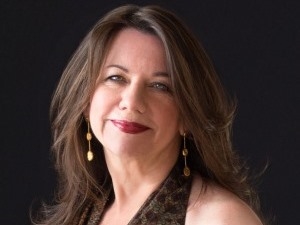Eder opens the door to Bartók in Key Pianists series

Terry Eder performed Thursday night in Weill Recital Hall.
Pianist Terry Eder is the creator of the Key Pianists recital series, now in its second season. Designed to bring lesser-known musicians who have developed insights into particular corners of the repertory, the series presented Eder herself Thursday night at Weill Recital Hall.
Eder is an example of the unique and valuable breed of scholar/musician. Her interest is the Hungarian piano literature tradition. She has studied the music at the source in Hungary, learned the Hungarian language, and worked with pianist Zoltán Kocsis. Kocsis, who died last November, was a great Bartók player, and that composer is one of Eder’s most salient interests—she has recorded his music and delivered lecture/performances on him.
Bartók was the summit of what was a strong recital. Not confined to Hungary, this was a concert with a broader Central European flavor; along with Bartók, Eder played Schubert, Donhányi, and Liszt’s transcription of Schumann’s song “Widmung.”
Bartók was first and last, and for anyone interested in the composer, it was rewarding to hear Eder’s deep knowledge and musical thinking.
The composer is heard as a late romantic Fauvist, or a spiky modernist, and both of those are qualities in his work. But Bartók’s place is ambivalent vis-a-vis those styles; he was a nationalist/ethnographic composer who used elements of romantic and neo-classical dialects to translate the Hungarian and Romanian folk music into compositional structures and forms. His work is both purely architectural and purely expressive in the earthiest sense of songs passed down via oral traditions. Eder played two sets of his pieces that demonstrated this.
She opened the concert with his Fifteen Hungarian Peasant Songs, fundamentally straight transcriptions of folk songs that honored the rhythmic and tonal freedom of the originals and deepened their harmonies. Then as the penultimate work on the program, she played his Op. 20 Improvisations on Hungarian Peasant Songs, eight short works that are among the composer’s greatest achievements.
The Improvisations are astounding pieces, entirely free of the dictates of form but absolutely rigorous and concentrated. Written in 1920, they look forward to the post-serial era of Pierre Boulez and Elliott Carter, while coming straight out of the soil of Bartók’s native land. The music is a cousin to American blues— while being different in sound and form—in its vocalized, deep vernacular sound.
Eder played the Peasant Songs with a relaxed, intuitive understanding, and the Improvisations with an exciting, controlled aggression. The mysterious “Lento, rubato,” and the three up-tempo improvisations that followed were particularly outstanding for their force and musicianship. Eder’s crisp, muscular attacks gave powerful life to every extemporaneous abstraction and unresolved phrase.
Intensity was the fundamental quality. Eder played with strength and clarity, but only a little delicacy. That, unfortunately, overwhelmed Ernst von Dohnányi’s Six Piano Pieces, Op. 41. Modest exercises in form, the compositions suffered in the company of Bartók and Schubert.
The latter’s Drei Klavierstücke, D. 946, were immediately exciting from the opening statement of the “Allegro assai.” Eder’s playing gave the feeling of opening a movie theater door into the middle of a thrilling chase scene, complete with contrasting flashbacks made more poignant by the knowledge that everything would return to the present, critical moment.
In slower passages, Eder maintained a sense of dignified determination. While other pianists approach this music with a greater sense of poetry, it was refreshing and satisfying to hear Schubert played with this sense of velocity.
Last on the program was “Widmung,” although there was an odd interruption in the flow of the performance. As Eder sat, preparing herself, an elderly gentlemen tottered up on stage, dumped a bouquet of flowers onto the piano strings, shrugged, and stepped off. The premature celebration didn’t affect Eder’s lyrical and luminous playing of the Schumann song, with just the right touch of pianistic drama (via Liszt) at the end.
And indeed the concert closed with Bartók. As an encore, Eder played a propulsive and aggressive “Dance in Bulgarian Rhythm” from Book Six of the Mikrokosmos. One hopes to hear her advocate for Bartók at greater length.
Key Pianists presents pianist Sara David Buechner and mime dancer/mask maker Yayoji Hirano,7:30 p.m., June 1 at Weill Recital Hall. facebook.com/KeyPianists/



Posted Mar 26, 2017 at 7:21 pm by Deborah Fortier
I thought her Schubert shone with sensitivity and eloquence. I thought the whole recital was a huge success, as Ms. Eder’s interpretations were well thought-out and implemented with grace, virtuosity, and warmth. Bravissimo!